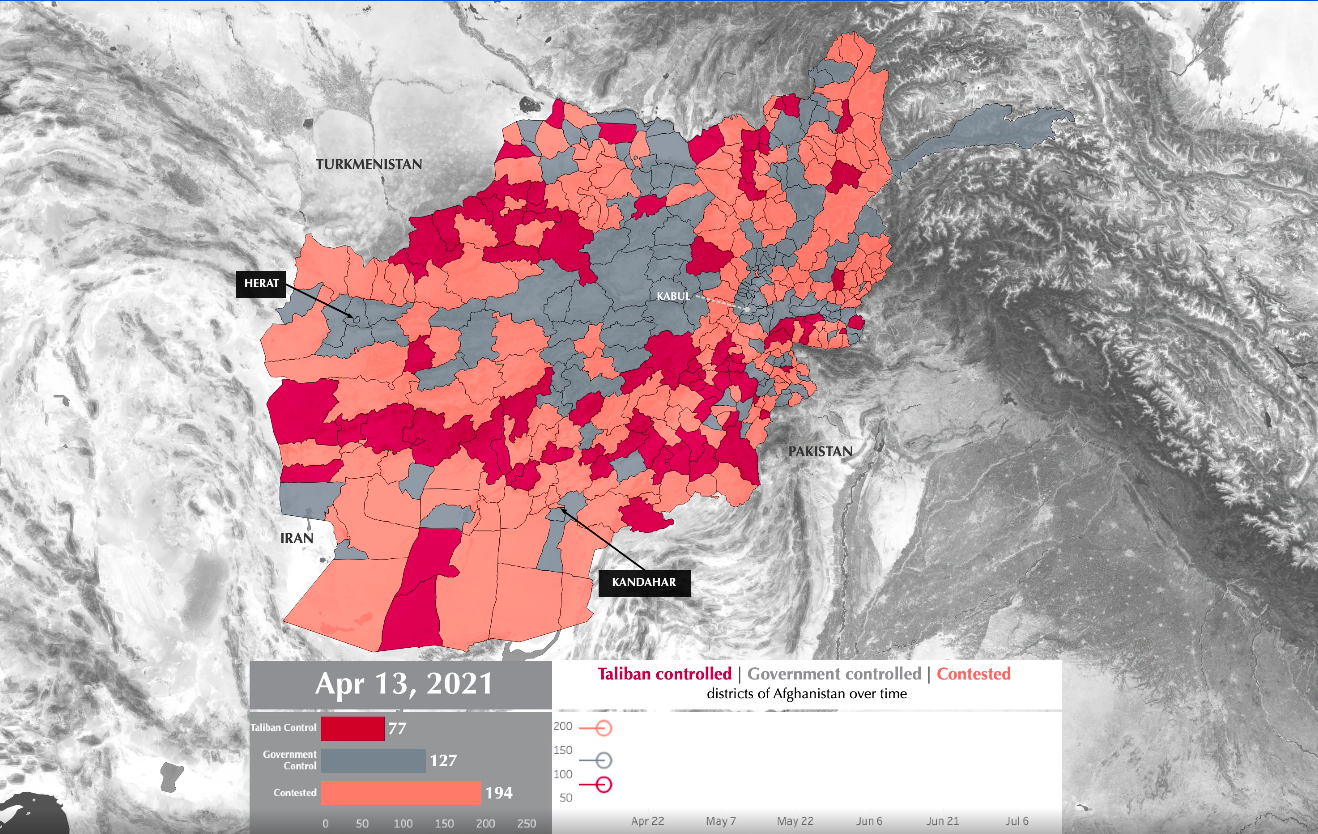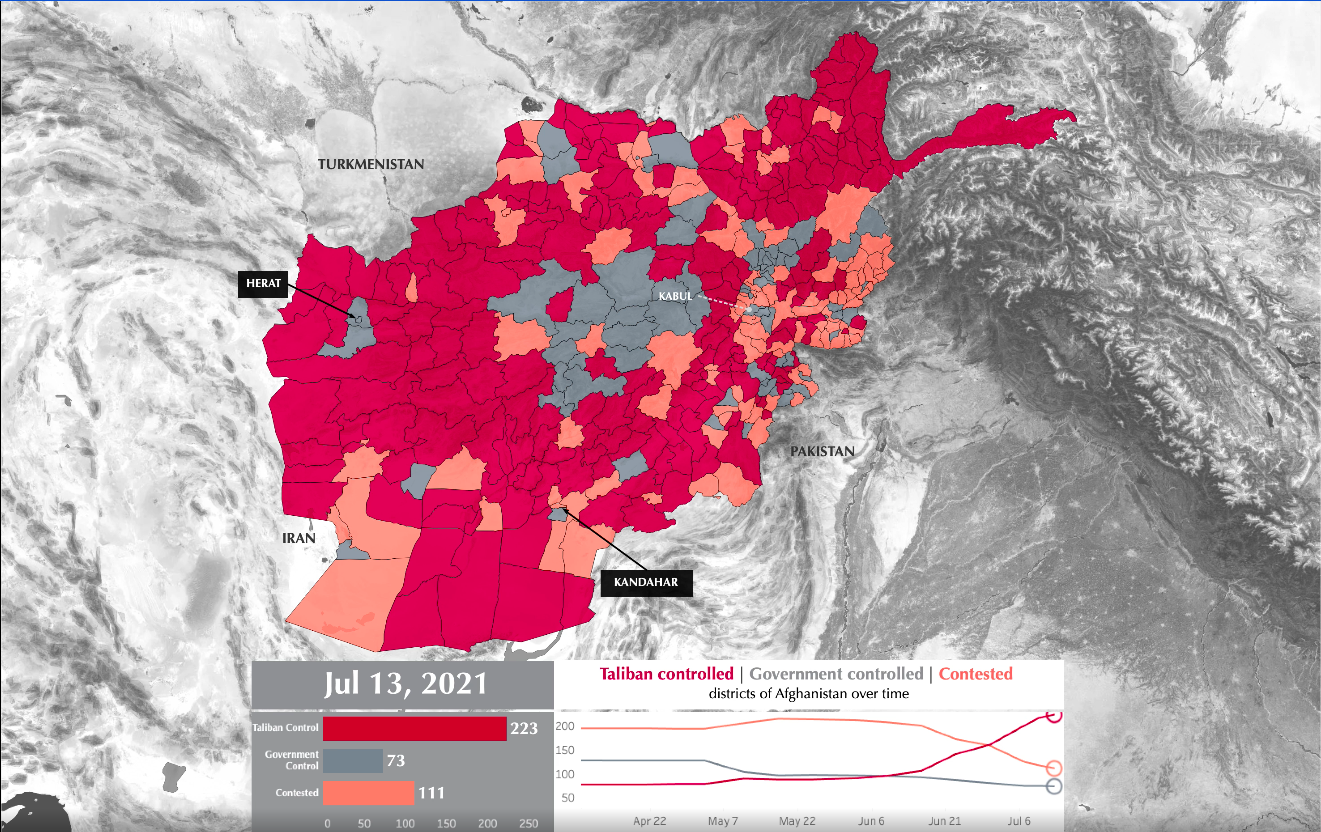Afghan government negotiator Nader Nadery announced on Thursday that the Taliban offered the Afghan government a ceasefire in exchange for the release of thousands of captured Taliban fighters.
The proposition comes in the wake of major Taliban gains over the course of this year, following the gradual withdrawal of U.S. troops from the country. In addition to the release of 7,000 prisoners, the Taliban also demand the removal of the names of several Taliban leaders from a United Nations blacklist, Nadery said, according to the BBC.
So far, the government has not said whether it will accept the ceasefire offer, a proposal Nadery described as a “big demand.”
The Foundation for the Defense of Democracy’s Long War Journal shows that the Taliban nearly tripled their area of control since mid-April, now controlling the majority of Afghan districts. The Taliban say they control 85% of Afghanistan’s 409 districts, a claim the Afghan government disputes.
US PLANS TO EVACUATE AFGHANS WHO HELPED DEPARTING TROOPS


In a speech delivered on July 8, President Joe Biden promised that all U.S. troops will leave Afghanistan by Aug. 31, meaning that a three-month ceasefire could see a cessation of hostilities until after the pullout is complete.
A similar deal was struck last year, in which 5,000 Taliban prisoners of war were released. According to BBC correspondent Lyse Doucet, it is believed that this deal ultimately worsened violence in the country, as many of the released fighters returned to the battlefield.
Many analysts fear a total collapse of the Afghan government following a total U.S. withdrawal. Economist and analyst Cornelia Meyer, writing for Arab News, warned of the danger of another “Great Game” taking place in the shattered country as different regional powers compete for resources and influence.
CLICK HERE FOR MORE FROM THE WASHINGTON EXAMINER
Despite these worries, Biden has shot down any suggestions of U.S. troops staying.
“How many more — how many more thousands of American daughters and sons are you willing to risk? I will not send another generation of Americans to war in Afghanistan with no reasonable expectation of achieving a different outcome,” he said to those suggesting extending the U.S. presence in the country in his July 8 speech.
